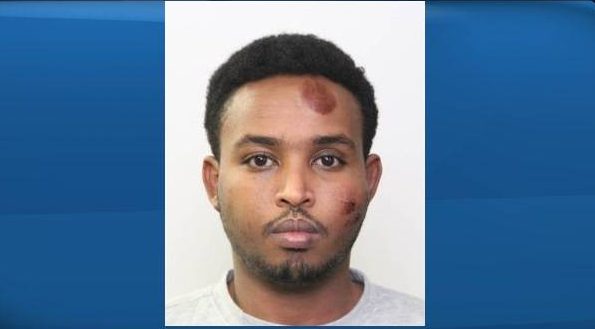The man accused in the September 2017 Edmonton attacks had an encrypted device police “just couldn’t get into,” former police chief Rod Knecht told an Australian newspaper earlier this week.

Knecht, who stepped down as Edmonton police chief in October, attended the 2018 International Counter-Terrorism Forum in Melbourne on Monday. Australia recently passed controversial cybersecurity laws that force global technology companies such as Facebook and Google to help police by unscrambling encrypted messages sent by extremists and other criminals.
Speaking about the U-Haul attack in downtown Edmonton, Knecht told The Sydney Morning Herald that if police had been able to access the device, it would have pushed the investigation forward.
“He had a device and we just couldn’t get into it,” Knecht said.
“If we could have accessed that device it would have pushed the investigation forward, it would have demonstrated who else was involved, because in situations where it looks like there was only one person involved, often times there was someone else who helped along the journey,” he continued.
“A lot of times these people aren’t held to account for killing people.”
Knecht did not say what the device was.

Get breaking National news
Abdulahi Sharif, who was 30 at the time of the attacks, faces 12 charges, including five counts of attempted murder.

It’s alleged that Sharif rammed his car into Const. Mike Chernyk at a roadblock outside the Edmonton Eskimos game on the evening of Sept. 30, 2017.
Chernyk flew through the air and surveillance video showed a man jump out of the car and repeatedly stab Chernyk before running away.
A few hours later, as police searched for the suspect, a U-Haul fled from a police check stop. Officers chased it through downtown Edmonton as the U-Haul swerved at pedestrians on the sidewalk.
Four people were struck and injured. Nobody died of their injuries.
Watch below: Ongoing Global News coverage of the 2017 Edmonton attacks
An ISIS flag was found in the back of the car used to hit Chernyk. While Knecht said in October 2017 the incidents were being investigated as “acts of terrorism,” terrorism-related charges have not been laid against Sharif.
Sharif is scheduled to go to trial by judge and jury in the fall of 2019. Eight weeks have been set aside for the trial.
With a file from The Associated Press.












Comments